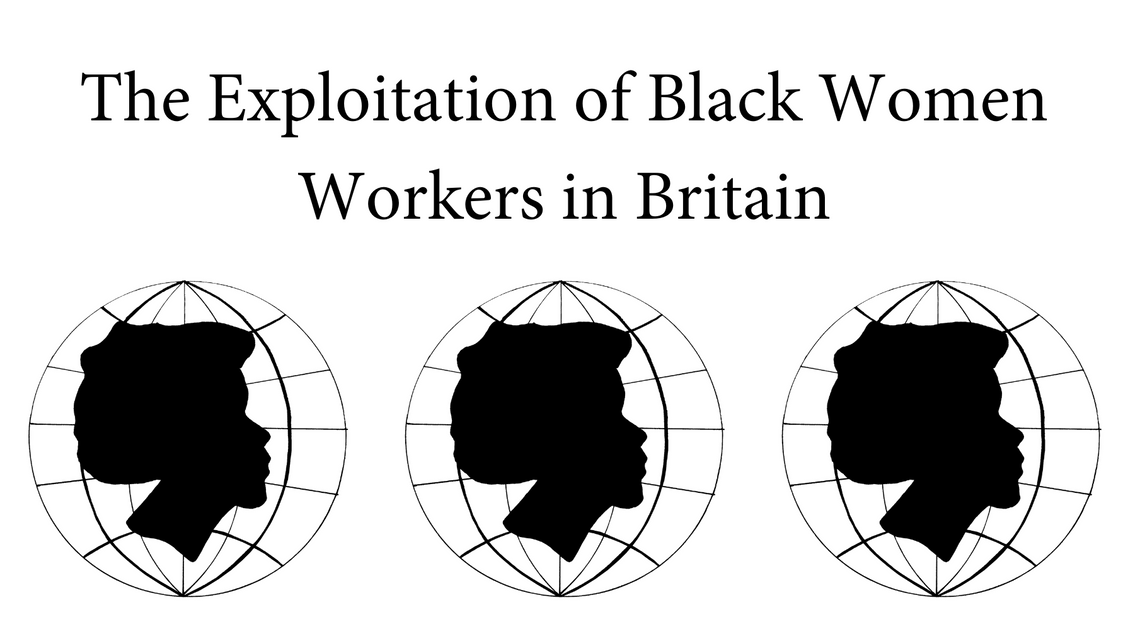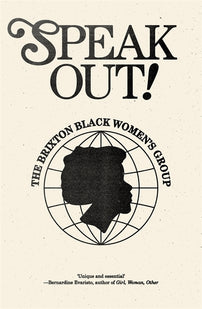We came here for better opportunities … And what, in reality, did we find?
The Brixton Black Women’s Group describes the triple jeopardy they faced; as workers, as women, and as Black people.

First published in Red Rag, 1978.
This is a contribution made by the women from the Brixton Black Women’s Group to the rally ‘Women All Over the World in Struggle for Liberation’, held at Conway Hall on International Women’s Day, March 8th, 1978.
Caribbean women today, and Black women in general, remain an exploited class. We are the poorest internationally and throughout history. We were a substantial part of the labour force in Britain, imported to meet its economic needs, and we remain a significant part of that force.
Britain’s relationship with the Caribbean (in fact, it is the relationship of any metropolis with her colonies) has always been that of active underdevelopment. What I mean by active underdevelopment is that our labour power and natural resources was always at the disposal of Britain; economics was the decider in our relationship.
So that Enoch Powell, when he toured the Caribbean in the late fifties and early sixties and invited the people of the Caribbean to come and work in England, was no less racist then than when he made his ‘Rivers of Blood’ speech, or now when he voices his fear that we might spoil the British culture. Racist and imperialist motives are one and the same thing, they are not at all opposed. Imperialist decisions run with the economic tide.
Caribbean women who came to Britain at the time of the call were to staff the National Health Service with Black nurses and auxiliaries, British hotels and restaurants with chambermaids/ washer-ups, and Greater London Transport with conductresses. Other Caribbean women who came independently of the campaigns were forced to leave because of near-starvation, unemployment for their men and themselves, and little prospects of education for their children.
Near-starvation because the countries were geared to producing for the metropolis, unemployment because one Black person could reputedly perform the task of five white men (even if it would mean that their life expectancy would be only 30 years) and few schools, because what indeed would a colonial government do with educated Blacks?
To make it to Britain, regardless of the economic need, we had to pay our way. We had to pay to come to work, and at such cost! It certainly does not compare with tube fares. Women had to depend on relatives (members of the extended family) to club together and raise the fares to send to Britain the most educated, aspiring member of the family. They in turn were obliged to repay and to assist the members of the family remaining in the West Indies. In order to fulfil these commitments, Black women were forced into the most low-paid jobs and exploited sections of the community (even this compares well to situations in the West Indies); whatever the skills, the opportunities were severely limited.
Black women came to reap some of the economic joy that they knew was Britain’s to regain, albeit by sweat and blood what was rightly theirs and had been misappropriated. Things were rather more difficult than had been anticipated; it was taking so long to accumulate anything that would significantly affect our lives in the Caribbean should we return, and rather than maintaining 2 homes – one in Britain, one in the Caribbean – we had our families join us to struggle together.
We came here for better opportunities – What, in reality, did we find? On arrival, Black families were faced with appalling housing conditions, we were unwelcomed by racist landlords, and those landlords who did rent to us were to exploit us with overly high rents and inadequate facilities.
3–4 families were to occupy a couple of rooms where individuals slept in shifts. The slums were already existing then. Black women had become the new underdogs, we were to replace the lower working class. The government were complacent, since any immediate threat from the indigenous working class was delayed and also because, historically, their interest had always been in the labour power of Black people, not in their social welfare.
In employment, we were to fill the worst-paid jobs with long and unsociable hours and poor working conditions. They were also the kinds of jobs that were non-unionised, and where unions existed, the interest of the Black woman worker remained unheard and went undefended. Despite all these odds, Black women have fought heroically to resist exploitation. Examples of this can be seen in the Night Cleaners’ Strike of 1972. Black women were to contribute in the fight to obtain an increase in pay – and union recognition. The Ancillary Workers’ Strike, also of 1972, brought the struggle into the hospitals where nurses were later to strike for more money and better conditions.
In the sphere of education, children came into schools that were not prepared for their arrival. Consequently, there were language and cultural barriers that contributed to the alienation of West Indian children. Teachers reflected the racism of the society, and many children, regardless of the difficulties that they were experiencing, were labelled educationally sub-normal. These miseducated youths were to provide a new source of cheap labour for the economy. Britain no longer had to import labour; here was a secure reserve, purpose-built.
The harsh realities of racism, then, manifested in employment, housing, education and social life, served to entrap Black workers yet further. Any hopes of returning home were now shattered. Britain’s response has been to implement a series of immigration controls to deprive us of our rights as British subjects by reducing our status to that of contract labourers, while at the same time leaving the rights of white Commonwealth citizens intact.
As Britain began to feel an economic decline, Black people became more and more of a ‘problem’, the Acts became increasingly restrictive and repressive, and Black women faced particular violation of their home and privacy. For instance, Black women were asked to prove that they were indeed the parents of their children. This meant that the homes of the extended family had to be opened to intruders who imposed themselves on the interrogated individual members of the family.
The lack of status that these Acts gave to Black people have meant increased harassment of Black people by the police. Now they have a right to arrest you on suspicion – in fact, for any arbitrary reason. Many a Black mother has come under attack of the police when she rose in defence of her children. Recently, there has been a change in the 1977 Finance Act which means that Black women who work in this country and have children and other dependants abroad will soon be unable to support their family, either through tax claims or child benefits. This has been necessary, they say, because of the number of false claims that are made! This is practically impossible with all the evidence and documents that we have to provide before the claim is recognised.
The media and other institutions continue to make attacks on Black women. We are projected as perverted sex objects. Like the idea that every Black person is a potential mugger (as the police said on the TV), the Black woman is a potential prostitute, and we could go on …
Black women have been victims of forced sterilisation. The desire to decrease the Black race, and thus ‘the problems’, has meant that we go into hospitals for simple operations and find ourselves sterilised. Even though in principle we believe in a woman’s right to choose, we realise that Black women in Britain do not have this choice; in fact we are encouraged to abort!
Pretty raw deal
So yes, we are having a pretty raw deal and I suppose the questions in your mind include – What are we doing about it? How can you support us? All over Britain where Black people
have settled, we have soon enough realised that institutions play a negative role in our lives. As a result, we have sought to form self-help groups to provide alternative education geared towards a questioning of the system and the influencing of our community in a positive way.
There are numerous Black groups interested and geared towards supplementary education in the form of Saturday and summer schools – notably Ahfiwe in Brixton, which has dealt with children who are reputedly ESN [educationally sub-normal] and have later sat and passed GCE exams. There are various groups, like the West Indian Parents Action Group, who are actively seeking to influence the education of their children and to be recognised by the decision-making process. There are Black students’ action groups, also, who reach out to the Black community to help in a practical and advisory capacity.
Neighbourhood law centres have been set up to defend the rights of Black people. Black women’s co-operatives have been concerned with the politicisation of adults and with involving them in skills like the printing of news sheets, etc. There are also women’s study groups attempting to raise our own consciousness so that we can be active politically and in other projects, now and then highlighting issues that we feel the community need to know about.
Black women have found the need to become more autonomous from Black (often male-dominated) revolutionary groups. Still, the revolution is important to us. We would only betray our own experiences if we did not link our struggle with the struggle of the proletariat. We face a triple jeopardy; as workers, as women and as Black people. The fight for freedom and self-determination in the Third World; for the abolition of capitalist society and therefore the freedom of the working class; the fight against racism and for the liberation of women are all our struggles.
We have enough on our hands without the National Front. We need to form a broad anti-racist and anti-fascist front.
— An edited excerpt from Speak Out!: The Brixton Black Women's Group by Brixton Black Women's Group, Edited by Milo Miller.
[book-strip index="1" style="buy"]
